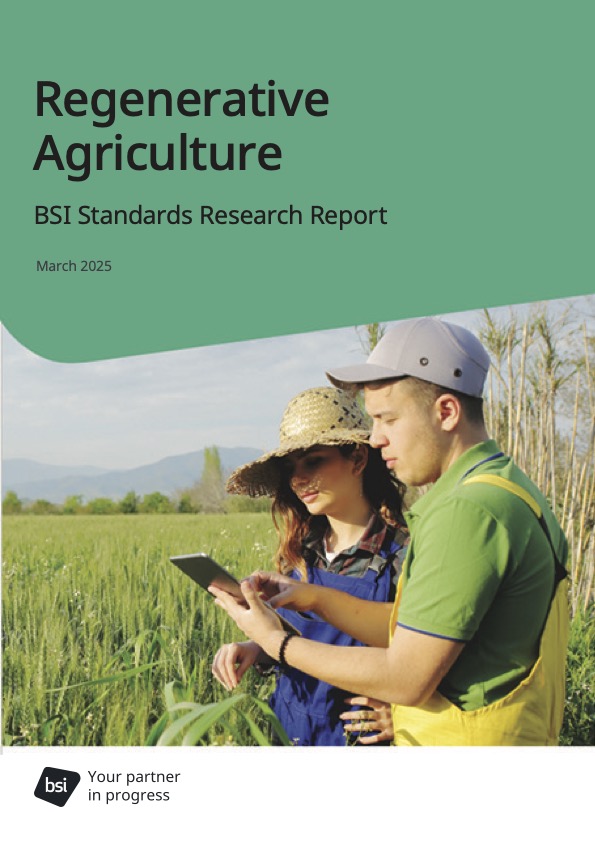New BSI research finds that the international agri- food industry does not have access to the clear guidance needed to stimulate widescale, trustworthy and verifiable regenerative agriculture practice.
Regenerative agriculture is increasingly seen as a solution to a variety of challenges in farming, environmental conservation and global sustainability. It can facilitate carbon sequestration, increase biodiversity, improve soil health and reduce the risk of flooding, among other benefits.
Yet the discovery research project led by BSI finds that the international agri-food industry does not have access to the clear guidance needed to stimulate widescale, trustworthy and verifiable regenerative agriculture practice.
The project uncovered key challenges faced by agri-food industry as they seek to integrate regenerative agriculture within their supply chains, and considered how standardisation can accelerate the adoption.
Insight from industry experts, trade associations, regulators, non-governmental organizations (NGOs) and farmers from both the UK and internationally suggests,
- There is an urgent need for guidance and training to address the gaps in farmers’ knowledge regarding the implementation of regenerative agriculture, and understanding of its impact on yield and profitability.
- Standardised measurement, reporting and verification (MRV) frameworks are vital to build trust and enable organizations to make credible claims about regenerative agriculture practices.
- A one-size-fits-all approach is not practicable due to the diversity of agricultural systems. A hybrid model that combines principles and outcomes, while allowing for local adaptation would be best.
The project concluded that the absence of a universal regenerative agriculture framework is causing confusion and inefficiencies across the supply chain.
The full report is available here:


No responses yet